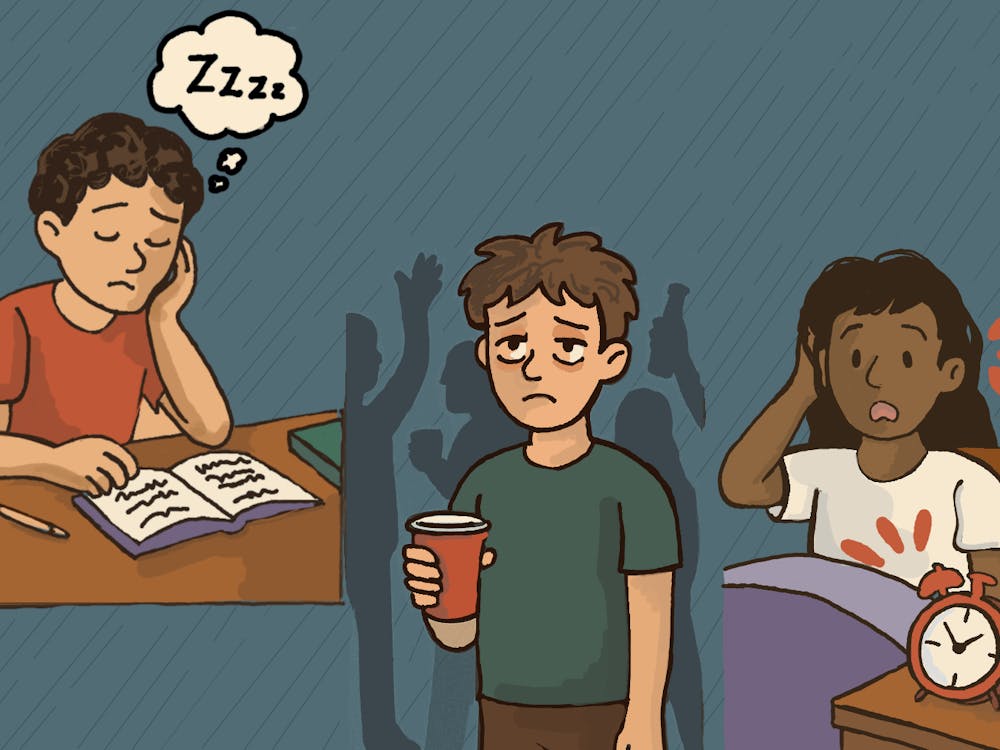A new Charlottesville resident is a refugee from the genocide in Darfur. His wife is with him, his sister is in Egypt and his mother’s whereabouts are unknown — though she may be in a refugee camp in Chad.
Second-year College student Christie Hercik has taken on the responsibility of making sure this man has all the help possible while he becomes acclimated to his new environment. Hercik and the Darfur refuge are just two members of a refugee tutoring program directed by Students Taking Action Now: Darfur, an organization spreading worldwide that works to raise awareness of the genocide in the Darfur region of Sudan.
Second-year College student Loren Monk, vice president of STAND, described the local chapter’s mission as an effort to reach out to the University student body and to Charlottesville to alert the community of the genocide and of what can be done here to help. Third-year College student Elise Gibson, co-chair of community outreach for STAND, said a number of initiatives have been organized by the group for this purpose, including an annual lobby day, Interfaith Vigil, guest lectures and, most recently, the refugee tutoring program.
STAND’s tutoring program was founded last spring and was spearheaded by Gibson’s co-chair, third-year College student Michael Mahoney. Gibson said the tutors, who are all students, prioritize working around the refugees’ schedules — even though the refugees work full-time jobs and are enrolled in other classes. This semester, Gibson plans to pair each refugee with one primary tutor, hoping to create the feeling of a community rather than a simple student-teacher relationship. In the case of a tutor’s absence, there is now an organized system of substitutes.
The refugees in the tutoring program are predominantly young men brought to the United States and placed in Charlottesville by the International Rescue Committee, which also provides them with homes, clothing and help with their job searches, Gibson said. This is only the beginning of the process of settling in, however; the tutoring program and other programs like it help the refugees develop skills that will help them build a life in Charlottesville.
Gibson said tutors focus on teaching “things that are most useful in a practical life sense” — including reading, writing and speaking in English, computer proficiency, and money management. At the first meeting this semester, these topics were presented to the refugees in both English and Arabic.
“We don’t want you to be restricted to this list,” Gibson told the refugees and tutors, and the group looked over the topics, choosing which ones they felt they were either able to teach or needed to practice or learn.
The men have varying needs and degrees of proficiency in the subjects; some are still learning the alphabet, Gibson said, while Monk described one who was reading advanced material in English about the very situation he had escaped. At the meeting, one of the men requested help in preparing for the citizenship test on behalf of some of the refugees who were unable to attend, and the refugee with whom Hercik works was also preparing for the citizenship test.
Hercik described going to Alderman Library and finding information to help him prepare for a test that covered information about U.S. history that “even [she] didn’t know.”
One of the most important subjects to study, Hercik said, seemed to be speaking; she had observed that her partner was nervous about speaking and at first was too intimidated to ask questions. As Hercik said of the man she tutors, “the more he learns, the more confidence he has.” The education is not purely academic, and the refugees are not the only ones learning from the experience.
Hercik added that her involvement with tutoring has taught her how strong the refugees are. Of her partner’s experience, she said, it “shows so much strength on his part that he can be here,” still learning English and adjusting to a new community while working “all day, every day” for money, at least part of which he sends to his sister in Egypt.
The tutoring program has added another dimension to STAND, Monk said, by bringing the crisis to a personal level only possible with the one-on-one human interaction between tutor and refugee.
Monk described listening as one refugee gave his own perspective on a book he was reading about the situation in Darfur after he himself had lived in the midst of the genocide.
“It was really eye-opening ... hearing the stories they told,” he said.
As Gibson put it, the tutoring program “helps humanize it [the genocide] for us and gain perspective on the atrocities that are occurring.”
Gibson summarized this symbiotic relationship between tutor and refugee.
“I like to think in general that everyone is a teacher, that you can learn from everyone,” she said. “Everyone has something to learn, to teach and to share,”
Both the refugees and tutors are students, and each comes away from the tutoring sessions more knowledgeable, whether the knowledge relates to the pronunciation of a particular word or the definition of strength. Friendships also develop. Over the summer, the man Hercik tutored called her on speakerphone so his wife could help each to understand the other, when only months before, speaking had intimidated him.
“To actually make tangible change ... that’s what I like most about it,” Hercik said.






